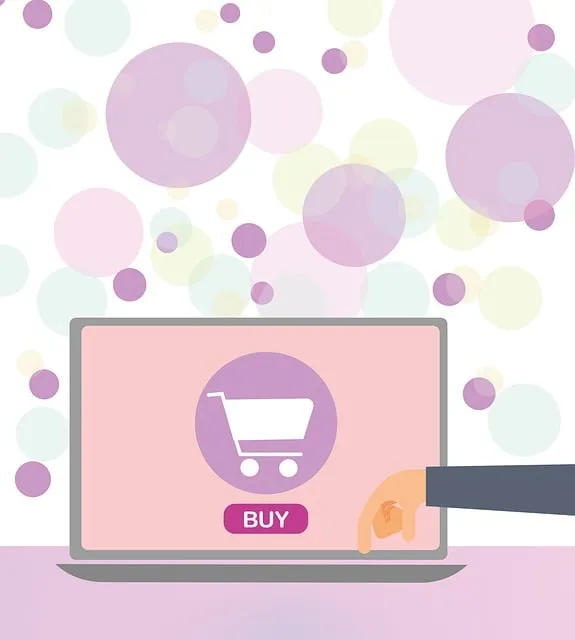In a world where online activities are closely watched, anonymizing browsers empower whistleblowers and activists by protecting their identities and hiding digital footprints. These tools, using encryption and proxies, ensure secure browsing, enabling users to gather and share evidence without fear of repercussions, especially in high-risk environments. IT professionals play a crucial role in implementing best practices for enhanced anonymity and data privacy, including browser configurations, VPN services, and multi-factor authentication, ensuring safe web navigation for sensitive individuals. Anonymizing browsers are game-changers for activists fighting for social causes, facilitating anonymous communication and positive change while safeguarding their safety from surveillance and retaliation.
In today’s digital era, IT professionals face a growing need to protect user privacy and anonymity online. Anonymizing browsers offer a robust solution, enabling secure browsing while masking IP addresses and preserving users’ identities. This article explores the benefits and workings of anonymizing browsers, delving into best practices for setting up secure environments. We also highlight real-world applications, focusing on how these tools safeguard whistleblowers and activists who rely on anonymity to share critical information without fear of reprisal.
- Understanding the Need for Anonymity Online
- How Anonymizing Browsers Work and Their Benefits
- Best Practices for Setting Up Secure Browsing Environments
- Real-World Applications: Protecting Whistleblowers and Activists
Understanding the Need for Anonymity Online

In today’s digital era, where every click and search is tracked, understanding the need for anonymity online has become paramount, especially for whistleblowers and activists who risk their safety by exposing sensitive information. Anonymizing browsers play a crucial role in enabling these professionals to protect their identities while navigating the web, ensuring their privacy and security.
By using specialized tools designed to mask IP addresses, encrypt data, and obscure user activities, anonymizing browsers allow individuals to browse the internet freely without leaving digital footprints. This is particularly vital for those who operate in high-risk environments where their online behavior could attract unwanted attention or lead to potential harm. Anonymity provides a shield, fostering a sense of security that encourages open dialogue and promotes the exchange of critical information.
How Anonymizing Browsers Work and Their Benefits

Anonymizing browsers work by masking or hiding users’ online identities, making it difficult to track their internet activity. These tools typically achieve this through various methods such as encrypting web traffic, using proxy servers, or providing a layer of privacy protection like Virtual Private Networks (VPNs). For whistleblowers and activists who need to share sensitive information while protecting themselves from surveillance, anonymizing browsers offer significant benefits. They help preserve anonymity, ensuring that personal details and online behavior remain confidential, which is crucial for safety and security.
By using these browsers, individuals can access the internet without leaving digital footprints, enabling them to gather and share evidence discreetly. This feature is invaluable for those who need to expose wrongdoings or organize activism without fear of retaliation. Anonymizing browsers also enhance privacy, protecting users from targeted advertising and data collection, which can be particularly important in repressive environments where online activity is closely monitored.
Best Practices for Setting Up Secure Browsing Environments

To create secure browsing environments, IT professionals should focus on best practices that safeguard user anonymity and data privacy, especially for whistleblowers and activists who often operate in sensitive contexts. This involves configuring browsers with enhanced security settings, such as disabling tracking options and first-party cookies. Utilizing trusted VPN services and anonymizing proxies can further protect users by masking their IP addresses and encrypting internet traffic.
Implementing robust security protocols like multi-factor authentication (MFA) adds an extra layer of protection. Regularly updating browser versions to include the latest security patches is crucial for mitigating known vulnerabilities. Additionally, employing secure browsing modes or containers can isolate activities, preventing potential breaches from spreading across different parts of a network. These measures collectively ensure that whistleblowers and activists can navigate the web securely while preserving their anonymity.
Real-World Applications: Protecting Whistleblowers and Activists

In today’s digital age, an anonymizing browser plays a pivotal role in protecting whistleblowers and activists who seek to expose wrongdoings within organizations or advocate for social causes. These individuals often face significant risks, including surveillance and retaliation, when they take on powerful entities. Anonymity tools enable them to navigate the web securely, hiding their digital footprint and preserving their privacy. By using an anonymizing browser, whistleblowers can communicate with like-minded groups, share sensitive information, and collaborate without fear of exposure.
This is especially crucial in countries where freedom of speech and political activism are suppressed. Activists can organize protests, disseminate information about human rights abuses, or expose corruption without revealing their identities. Anonymizing browsers empower them to challenge oppressive regimes and incite positive change, ensuring their safety while they fight for what they believe in. Thus, these tools are not just beneficial for IT professionals but also for those who dare to speak truth to power.
Anonymizing browsers have become a powerful tool, especially for IT professionals who prioritize security and privacy. By understanding the need for online anonymity, implementing best practices, and leveraging these tools in secure environments, professionals can protect sensitive data and support individuals like whistleblowers and activists who rely on anonymous browsing to expose injustices. Anonymizing browsers offer a crucial layer of protection, enabling users to navigate the digital world with enhanced security and peace of mind.
